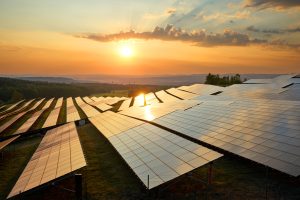The 12th meeting of the Kazakhstan-German Intergovernmental Working Group (IWG) on Trade and Economic Cooperation took place at the German Federal Ministry for Economic Affairs and Energy in Berlin last week. For the first time, the chief organizer of the event from the Kazakh side was the Ministry of Foreign Affairs of Kazakhstan, which at the end of last year was tasked with attracting foreign investments and supporting Kazakhstan exports abroad. The Kazakh delegation was headed by the Deputy Minister of Foreign Affairs and Co-Chairman of the IWG, Mr. Yermek Kosherbayev, and the delegation of Germany was headed by the Deputy Federal Minister for Economic Affairs and Energy, Co-Chairman of the IWG, Mr. Eckhard Franz, Kazakh Invest national investment promotion company reported.
The two sides expressed a strong interest in strengthening trade, economic and investment cooperation. The parties came to an agreement to develop and sign a Road Map at a high level to systematize cooperation between Kazakhstan and Germany. The document would be aimed at implementing targeted projects in sectors such as machine building, chemicals, light industry, mining, steelwork, energy, agriculture, transport, green economy, housing and public utilities, tourism, healthcare, vocational training, and higher education, as well as economic digitalization and IT. The Road Map will act as a starting point for a new stage of bilateral cooperation aimed at modernizing Kazakhstan economy, attracting advanced technologies from Germany, and manufacturing highly-processed goods in the Central Asian country.
During the meeting of the IWG, the delegations discussed various thematic aspects of bilateral trade and economic cooperation between Kazakhstan and Germany, namely energy efficiency, environment, agriculture, industry, transport and logistics, housing and public utilities, health, education and dual education, tourism, financial cooperation and interaction in the field of intellectual property protection. In 2018, four investment projects with participation of German capital amounting to over $183 million were implemented in Kazakhstan. The projects were implemented in the fields of trade, industry and renewable energy and created about 400 new jobs.
Kazakh Invest, acting as a single negotiator on behalf of the Government of Kazakhstan, informed German investors about investment incentives and measures of state support as well as presented to German investors “niche projects” packaged by the company.
The head of the German delegation stressed the role that Kazakhstan plays as Berlin’s most important regional partner. “Our relations are marked by a huge and not yet fully-realized potential, as well as untapped niches that we can explore with specific proposals. For us, Kazakhstan is the most important key partner in Central Asia. The German economy is interested in large-scale involvement in the modernization of the Kazakh economy and is ready to make its own contribution in this direction,” Mr. Franz said.
In 2019, the parties plan to implement a joint project with Tönnies, German meat processing and food production company with an annual turnover of EUR 6.3 billion. The company intends to develop a complete technological chain for meat processing, which includes a feedlot, a meat processing plant and distribution centers. There are also projects for construction of renewable energy plants planned to be implemented jointly with Sun Farming and Prisma Solar. During bilateral meetings, German company FB Waste Recycling discussed the possibility to establish a joint venture with Kazakh company Ekozher for waste recycling project in Zhambyl region. The project with a total value of 50 million euros would include solid waste processing (150 thousand tonnes per year) and power generation (up to 5 MWh). The project would create about 80 new jobs in the region.




